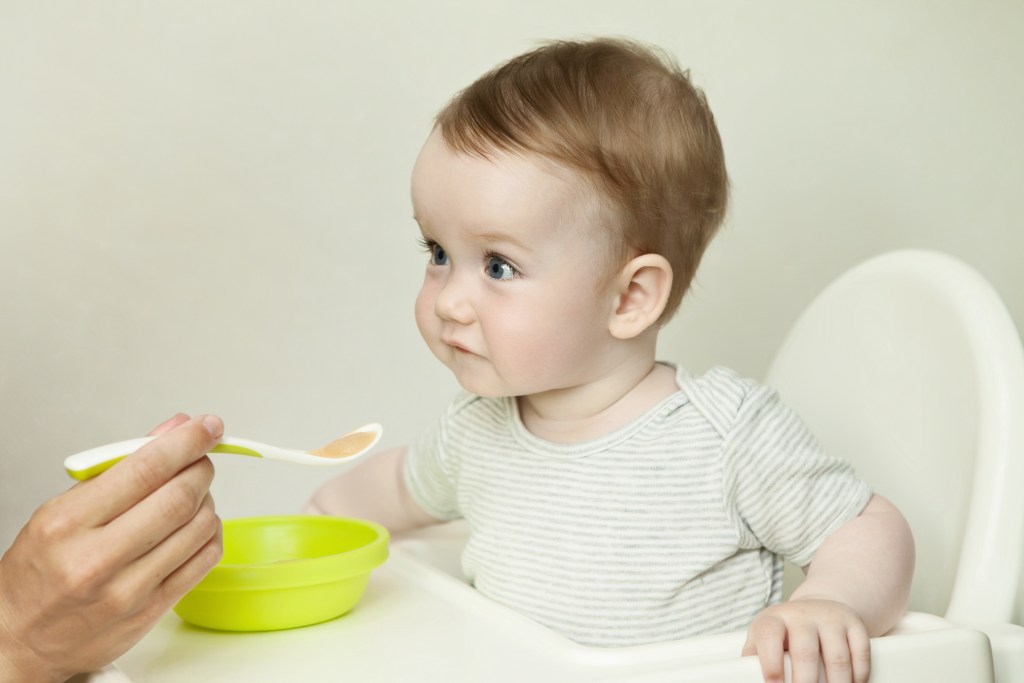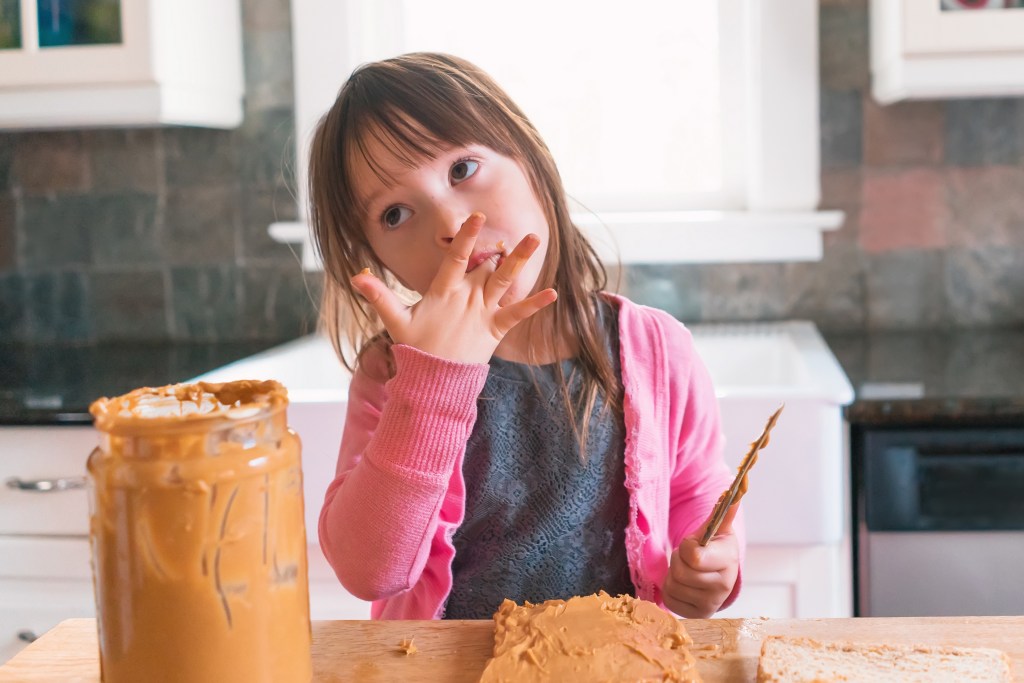Introducing your baby to new foods and flavors can be a fun and exciting time, but it’s also important that parents know how to recognize if their child is having an adverse reaction to a new food, especially peanuts. Introducing peanuts to a baby can be incredibly nerve-wracking since peanut allergies seem to be more and more common these days.
Peanut allergies can definitely be scary so it’s important that parents know what signs or a reaction to look for when introducing peanuts to their baby. Here are some signs your baby has a peanut allergy and what to do if you suspect a reaction is occurring.

At what age can babies try peanut butter?
It used to be advised that babies not be introduced to peanut butter until they were at least one year old, but now, the American Academy of Allergy, Asthma, and Immunology recommends gradually introducing peanuts to infants as young as 4 to 6 months, as long as they have had no issues with any other solid foods that have been introduced earlier. They also warn that delaying the introduction of allergenic foods like peanuts, eggs, and shellfish may actually increase a baby’s risk of developing allergies. However, they do note that if a sibling has an existing peanut allergy, an allergist should be consulted before introducing peanut butter to an infant.
Children’s Hospital of Philadelphia (CHOP) also warns that infants who have severe eczema, and/or an egg allergy are also at high risk for developing a peanut allergy, so you should contact your healthcare provider before introducing peanuts as they might want to run tests to see if there will be a reaction. For children in this group, a skin prick test or even a blood test can be done to determine if there will be a reaction. They also suggest speaking with a medical professional before introducing peanuts if your baby has even mild or moderate eczema. If your baby has no history of eczema and there are no food allergies in your family you can feel free to introduce peanut butter at home in small amounts.
Peanut butter should be thin and runny when introduced to babies to help avoid choking, and whole peanuts shouldn’t be introduced until your child is about 4 years old.
How common is a peanut allergy in babies?
According to a study published in the New England Journal of Medicine, 1 to 2% of children suffer from a peanut allergy. Peanuts are one of the most common food allergies and are a member of the legume family. Although peanut allergies may be common, the Cleveland Clinic notes that 1 in 5 children might grow out of their peanut allergy by adulthood.

Signs your baby has a peanut allergy
If your baby has tolerated all other solid foods that have been introduced and there are no signs they might be predisposed to a peanut allergy, it’s time to introduce peanut products to your infant. You can introduce peanut butter or even peanut powder in small amounts to slowly test if your baby will have a reaction. Reactions to peanut products can happen quickly or within several hours of being introduced, which is why it’s important to constantly monitor, although they tend to occur anywhere between 30 minutes to an hour and a half after introduction. According to CHOP, reactions can range from mild, like a new rash or hives around the mouth and face, to severe, like swelling of the lips, mouth, and face, vomiting, hives all over the body, coughing, wheezing, or difficulty breathing, lethargy, or a sudden change in skin color.
What to do if you suspect your baby is having a reaction
Healthline warns that children who experience an allergic reaction will typically only show symptoms in only one location on their body. If your child is experiencing multiple symptoms at the same time, even if they are multiple mild symptoms, that may be a sign that your child is suffering from anaphylaxis and you need to seek immediate medical attention. You should go to an emergency room immediately if this is the case.
Dr. Tiffany J. Owens, an allergist and immunologist at The Ohio State University Wexner Medical Center and assistant professor at The Ohio State University College of Medicine explained to Verywell Family that the timing of an allergic reaction can tell a parent a lot about how severe the allergy may be. “The most concerning reactions are those that occur nearly immediately, as in within a few minutes up to one hour,” she noted, adding that the longer it takes for symptoms to show the less likely the child is experiencing an allergic reaction.
If your child is having a mild reaction, such as redness or hives around the mouth, you can give them Benadryl to help with the symptoms, and then call your pediatrician for advice on how to proceed.
Always consult your pediatrician
If you’re concerned about introducing peanuts to your baby you may want to do so during an appointment with your pediatrician. If your baby tolerates peanut butter experts suggest that you continue to feed it to them at least three times per week to help prevent an allergy from developing.
Editors' Recommendations
- Understanding baby wake windows is the key to better sleep
- When do babies start talking? Should you be concerned if yours isn’t?
- Why do babies growl? Understanding your little one’s weird sounds
- We love these gorgeous aesthetic names for baby boys and girls
- Baby registry must-haves: This is everything that should be on your list



